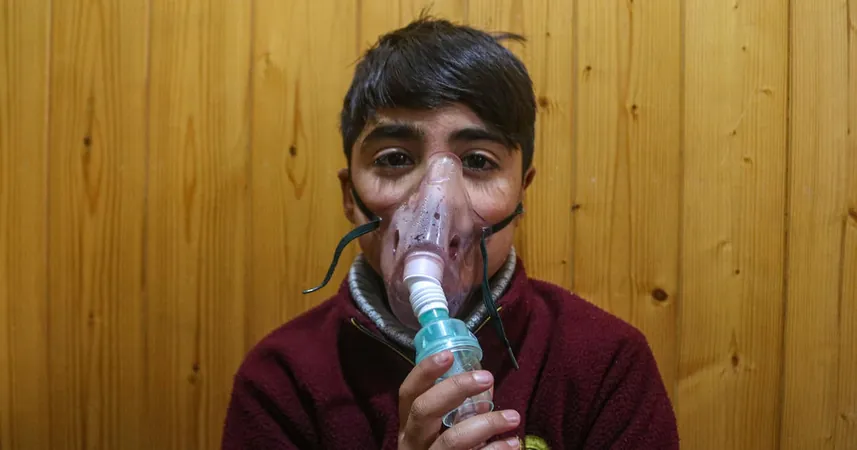
First Cases of Human Metapneumovirus Confirmed in India: Experts Say "No Need to Panic!"
2025-01-07
Author: Ken Lee
New Delhi
India has confirmed its first cases of human metapneumovirus (HMPV), with reports of seven individuals infected as of Tuesday, according to the Indian Council of Medical Research (ICMR). The detected cases have raised eyebrows, leaving many to wonder about the implications for public health.
Among the new cases, two were identified in Nagpur, two in Bengaluru, and one each in Ahmedabad, Chennai, and Salem. Notably, a three-month-old girl tested positive on Monday, highlighting how the virus can affect young children. Additionally, an eight-month-old boy was found to be co-infected with both HMPV and respiratory syncytial virus (RSV), sparking further concern among parents.
HMPV is known to cause respiratory illnesses affecting individuals across all age groups, with young children, older adults, and those with compromised immune systems being most vulnerable. Common symptoms include cough, fever, nasal congestion, and shortness of breath, which are often similar to other viral respiratory infections.
Interestingly, the surge of HMPV cases has already been observed in China, prompting health experts worldwide to take notice. However, Dr. Carla Garcia Carreno, a leading specialist in infection prevention and control, reassured the public that there is no immediate threat of a pandemic associated with HMPV. "This virus has been circulating for quite some time now, which means that many individuals likely possess some immunity to it," she remarked. She also emphasized that HMPV is more stable than the frequently mutating COVID-19 virus, making it less challenging to manage.
In response to the emerging cases, India’s federal government has urged states to enhance surveillance of respiratory illnesses and educate the public on effective preventive measures. Key recommendations include sneezing or coughing into a tissue or elbow, thorough handwashing, and wearing masks in crowded areas.
Indian Health Minister J.P. Nadda confirmed that the current infections did not involve recent travel history, underlining that health systems in India are continuously monitoring the situation in China and surrounding regions. He reassured citizens that HMPV is "not a new virus" and pointed out that it has been known since its discovery in 2001. Nadda stated that India has robust health systems and surveillance networks ready to handle any potential increase in cases.
The Ministry of Health also maintained that the current HMPV infections do not raise alarm, as there has not been a notable rise in respiratory illnesses across the country. They reported that most cases of HMPV infection are mild and self-limiting, often requiring no specific medical intervention.
Health organizations such as the World Health Organization (WHO) and the U.S. Centers for Disease Control and Prevention (CDC) have similarly stated that there is no cause for concern regarding HMPV infections in Asia. However, as vigilance remains essential, health experts are encouraging individuals to stay updated on health advisories and take preventive actions seriously.
As HMPV cases surface in India, will this lead to heightened awareness about respiratory illnesses or will it fade into the background like other seasonal viruses? Only time will tell as health authorities continue to monitor the situation closely.

 Brasil (PT)
Brasil (PT)
 Canada (EN)
Canada (EN)
 Chile (ES)
Chile (ES)
 Česko (CS)
Česko (CS)
 대한민국 (KO)
대한민국 (KO)
 España (ES)
España (ES)
 France (FR)
France (FR)
 Hong Kong (EN)
Hong Kong (EN)
 Italia (IT)
Italia (IT)
 日本 (JA)
日本 (JA)
 Magyarország (HU)
Magyarország (HU)
 Norge (NO)
Norge (NO)
 Polska (PL)
Polska (PL)
 Schweiz (DE)
Schweiz (DE)
 Singapore (EN)
Singapore (EN)
 Sverige (SV)
Sverige (SV)
 Suomi (FI)
Suomi (FI)
 Türkiye (TR)
Türkiye (TR)
 الإمارات العربية المتحدة (AR)
الإمارات العربية المتحدة (AR)